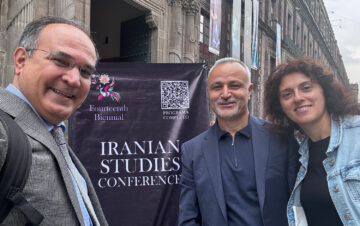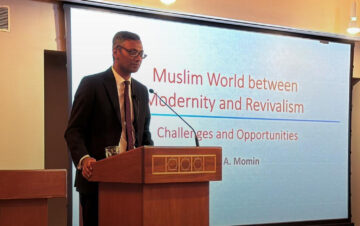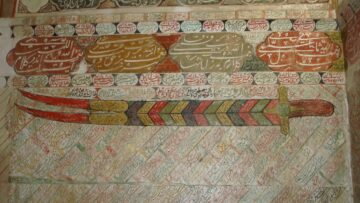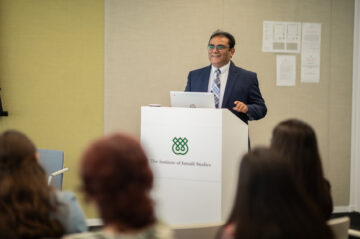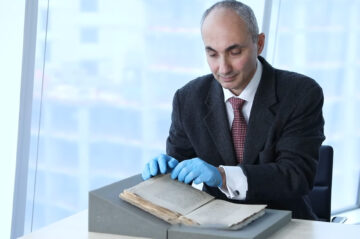Dr Qutbuddin noted that modern scholarship has acknowledged the unprecedented benevolent attitude of the FatimidsMajor Muslim dynasty of Ismaili caliphs in North Africa (from 909) and later in Egypt (973–1171) More in the 10th and 11th centuries towards their subjects. While the original sources are mostly silent about the motives of the Fatimid rulers for adopting this policy, the most common explanation given by modern scholars is that of political expediency, because the Fatimids were a minority in a predominantly Sunni country.
In his paper, Dr Qutbuddin argued that, in addition to these possible reasons, a specific religious outlook and ideology of the universality of religions may have formed the basis for Fatimid policies and practices. To further illustrate this point, he examined a section from Abu Hatim al-Razi’s A’lam al-Nubuwwa. Abu Hatim argued for the universality of religions and said that there were hidden truths within the diverse scriptures and traditions of the prophets which were universal across time and space. This idea of the universal nature of revealed religions was also articulated by other Fatimid scholars, including Al-Qadi al Nu‘man, the prominent 10th century Fatimid scholar, and the well-known scholar and da‘i Nasir Khusraw.
Dr. Qutbuddin further showed how this ideology was translated into policy by looking at the Aman document that was issued by al-Qa’id Jawhar, the general of the Fatimid Imam-Caliph al-Mu‘izz, to the people of Misr when he took the city in 969 CE. He further articulated how policy was transmuted to practice by citing examples of the unprecedented restoration and building of non-Muslim places of worship permitted by the Fatimid Imam-caliphs, the celebration of non-Muslim religious festivals, and the high administrative positions of power that non-Ismaili Muslims and non-Muslims achieved in the Fatimid state.
Dr Qutbuddin was participating in the Annual Meeting of the American Oriental Society which was founded in 1842. Its emphasis is on the encouragement of basic research in the languages and literature of Asia.

